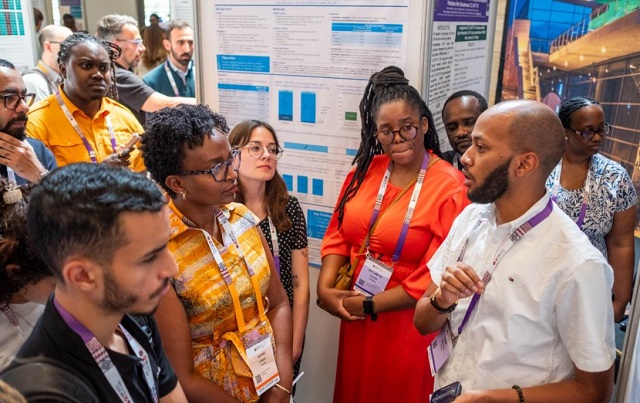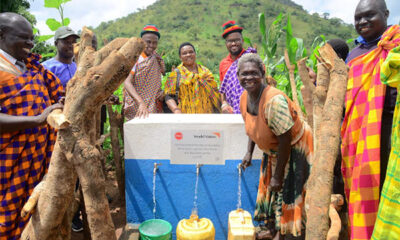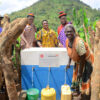Health
Hope Amid Uncertainty: IAS 2025 Ends with Scientific Breakthroughs and Alarm Over HIV Funding Cuts
The 13th International AIDS Society (IAS) Conference on HIV Science (IAS 2025) concluded last week in Kigali with a powerful mix of optimism and concern. While scientific innovation stole the spotlight, particularly the unveiling of long-acting HIV prevention and treatment options delegates were deeply troubled by a looming global funding crisis that threatens to undermine decades of progress in the fight against HIV/AIDS.
The five-day event, held from July 13–17, attracted more than 4,000 researchers, healthcare professionals, policymakers, and activists from around the world. Attendees engaged in 142 oral presentations and reviewed over 1,400 scientific posters, reaffirming the role of innovation and solidarity in combating global health challenges.
But as the science advanced, the funding landscape faltered. One of the most sobering issues discussed was the severe cutbacks to HIV programs, especially following this year’s proposed \$400 million reduction in U.S. funding for the President’s Emergency Plan for AIDS Relief (PEPFAR).
Delegates raised alarms over the far-reaching effects of financial instability. In Mozambique, antiretroviral treatment (ART) initiations plummeted by 25% in a single month. Johannesburg reported a 30% drop in HIV testing and treatment uptake, and nearly 90% of surveyed HIV organizations across Latin America and the Caribbean confirmed suspended funding.
Although there are ongoing efforts in the U.S. Senate to shield PEPFAR from the proposed budget cuts, advocates warn that unresolved uncertainty places lives at risk. “PEPFAR has been one of the greatest success stories in global health. The world cannot afford to let funding instability reverse the immense progress we’ve made,” said Dr. Beatriz Grinsztejn, IAS President.
Despite the funding crisis, scientific progress gave many attendees a reason to remain hopeful. Chief among the breakthroughs was lenacapavir, a long-acting injectable pre-exposure prophylaxis (PrEP) drug, administered only twice a year and shown to be nearly 100% effective in preventing HIV.
Already approved by the U.S. Food and Drug Administration (FDA) and endorsed by the World Health Organization (WHO), lenacapavir could dramatically shift HIV prevention strategies. A supply agreement between its manufacturer, Gilead Sciences, and the Global Fund will provide doses to two million people over the next three years.
“While an HIV vaccine remains elusive, lenacapavir is the next best thing,” said WHO Director-General Dr. Tedros Adhanom Ghebreyesus. “We are committed to ensuring this innovation reaches those who need it most.”
Africa took centre stage during the conference. Rwanda showcased its achievement in meeting the UNAIDS 95-95-95 targets ahead of schedule—a feat praised by Rwanda’s Health Minister Dr. Sabin Nsanzimana.
The event also introduced the Africa Cure Consortium, reflecting growing African leadership in HIV science and research. “PEPFAR is a lifeline for Africa,” said IAS President-elect Kenneth Ngure. “But we must also lead and invest in sustainable financing to reduce donor dependence.”
The conference spotlighted innovations like MK-8527, a once-monthly oral PrEP pill from Merck, and the injectable cabotegravir (CAB-LA), which showed high adherence among adolescent girls and young women in Zambia.
There were notable advances in paediatric and adolescent care. New research supported the early use of broadly neutralizing antibodies (bNAbs) to prevent mother-to-child transmission. Zimbabwe’s digital adherence program improved treatment outcomes in youth, although mental health concerns, especially suicidal ideation linked to stigma, remain urgent challenges.
Technological innovations also drew interest. In Nigeria, AI-powered mobile X-ray vans are speeding up TB diagnosis and integration of health services. In South Africa, AI tools are being used to enhance HIV care among young women, while countries like Kenya, Malawi, and Ghana are leveraging blockchain for better pharmaceutical tracking. Canada’s MARVIN chatbot is supporting adherence among HIV-positive individuals.
Throughout the conference, advocates called for equitable access to HIV innovations. “Long-acting drugs can only transform lives if people can actually get them,” said Yvette Raphael, Executive Director of Advocates for the Prevention of HIV and AIDS.
UNAIDS Executive Director Winnie Byanyima concluded with a powerful message: “We must protect what we’ve achieved and continue fighting to end AIDS—through resilience, partnerships, and a commitment to equity.”
Comments



















